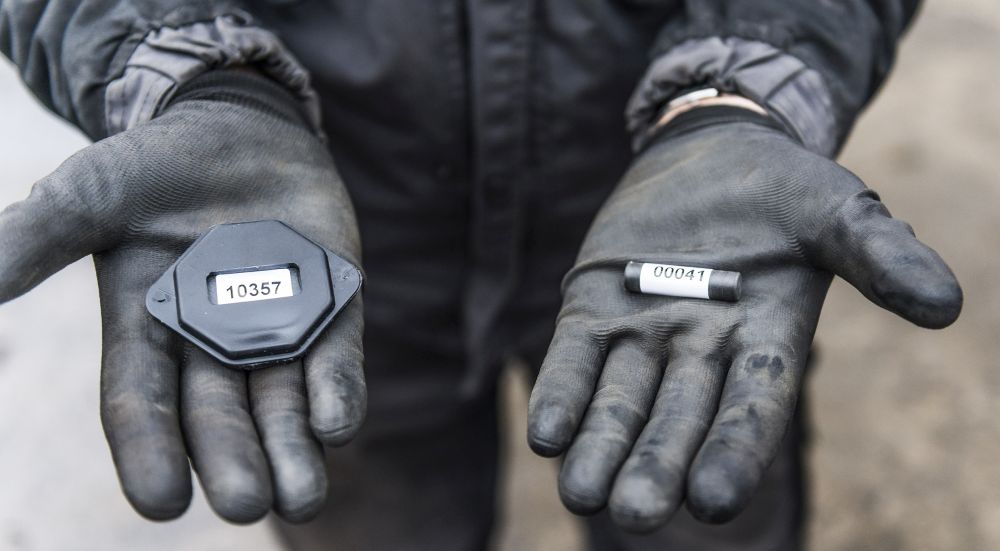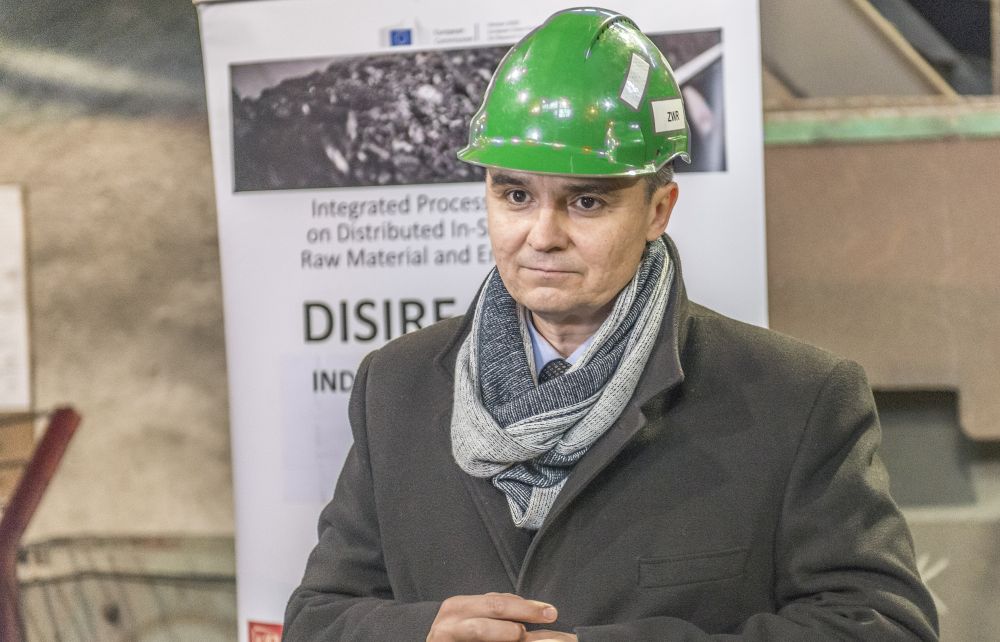YOUR BROWSER IS OUT-OF-DATE.
We have detected that you are using an outdated browser. Our service may not work properly for you. We recommend upgrading or switching to another browser.
Date: 16.06.2020 Category: science/research/innovation
The international project DISIRE - co-created by scientists from the Faculty of Geoengineering, Mining, and Geology of Wrocław University of Science and Technology - has been included in the list of 1,000 modern technologies that are changing the world. The title is awarded by the organisation Solar Impulse Foundation to recognise efficient and cost-effective solutions that have a positive impact on the environment and people’s quality of life.
 The name DISIRE comes from the words Integrated Process Control Based on Distributed in situ Sensors into Raw Material and Energy Feedstock. The initiative came into being in 2015 and lasted three years. Its budget, amounting to six million EUR, came from the programme Horizon 2020.
The name DISIRE comes from the words Integrated Process Control Based on Distributed in situ Sensors into Raw Material and Energy Feedstock. The initiative came into being in 2015 and lasted three years. Its budget, amounting to six million EUR, came from the programme Horizon 2020.
One of the four research areas under the DISIRE initiative was pursued by scientists from the Faculty of Geoengineering, Mining, and Geology in cooperation with the industrial partner KGHM Polska Miedź. They studied the capabilities of the "smart" mined material stream technology in terms of its application. The main executors of the project at our university were University Professor Leszek Jurdziak, PhD, DSc, Eng. Witold Kawalec, PhD, Eng. University Professor Robert Król, PhD, DSc, Eng. University Professor Radosław Zimroz, PhD, DSc, Eng.
- The most energy-consuming process in copper production is the conversion of the mining material that goes from mines to ore enrichment plants - says University Professor Robert Król, PhD, DSc, Eng., who headed the works at Wrocław University of Science and Technology under the DISIRE project. - While we all know what the geological structure of the deposit being mined is, i.e. what is the percentage of individual components during the mining activity, this information gets "lost” when the mined material is already at the ore enrichment plants. During transport, batches of mineral from different places become mixed and we don’t know which one is being enriched and, therefore, what exactly is its composition. This makes it difficult to adjust the processing processes so that they perfectly suit the raw material characteristics. Knowing the percentage of individual fractions such as sandstone, dolomite, or shale, it is possible to optimally prepare the process parameters and thus save energy while increasing the yield and reducing waste.
 So, the scientists decided to use smart sensors - RFID tags, the so-called pellets. They recorded information on qualitative and quantitative parameters of the ore being mined and then placed it in the stream of this raw material. The mineral was delivered together with the sensors to the ore enrichment plant, but before that special measuring devices read information about its composition.
So, the scientists decided to use smart sensors - RFID tags, the so-called pellets. They recorded information on qualitative and quantitative parameters of the ore being mined and then placed it in the stream of this raw material. The mineral was delivered together with the sensors to the ore enrichment plant, but before that special measuring devices read information about its composition.
The scientists developed many models and simulations as well as carried out experimental research in a KGHM mine, which confirmed the effectiveness of the solution they had proposed.
- However, we’re not stopping here - stresses Professor Robert Król. - Together with the Finnish research unit VTT Technical Research Centre and several other partners, under the project named InMine, we’re now trying to raise funding for research works being a continuation of our project. We’re already past the first stage of evaluation, positively assessed by the European Commission. We intend to create an empirical model of mined material distribution in the mine, which - already without RFID tags - will be fed with data from databases available in the mine, identifying the ore along its route, allowing for the duration of its transport, stops, etc., as well as providing information on ore parameters at ore enrichment plants.
The Solar Impulse Foundation was established by Bertrand Piccard, a Swiss aeronaut, who was the first to complete a trip around the world in a Breitling Orbiter balloon and made the first flight around the world in the Solar Impulse solar plane. He argues that we should see ecology from a profitability perspective, looking for a solution to the climate change issue in efficient technologies that lead to economic growth without forcing us to make financial sacrifices. That is why his foundation is looking for initiatives and companies that implement environmentally friendly technologies and solutions that are profitable and have a positive impact on people’s quality of life. It awards them with the "The Solar Impulse Efficient Solution Label" and adds them to the list of 1,000 modern technologies changing the world.
Currently, the list comprises 527 items in five categories (clean water and hygiene; cheap and clean energy; industry, innovation and infrastructure; sustainable cities and communities; and responsible consumption and production), with the DISIRE project being one of the latest. It is an international initiative bringing together 15 research centres and companies from Sweden (the project leader was the Lulea University of Technology from Sweden), Spain, Italy, Germany, Poland, and Israel. Together, they have developed solutions allowing the optimisation of technological processes used in areas including mining as well as chemical and steel industries.
Our site uses cookies. By continuing to browse the site you agree to our use of cookies in accordance with current browser settings. You can change at any time.